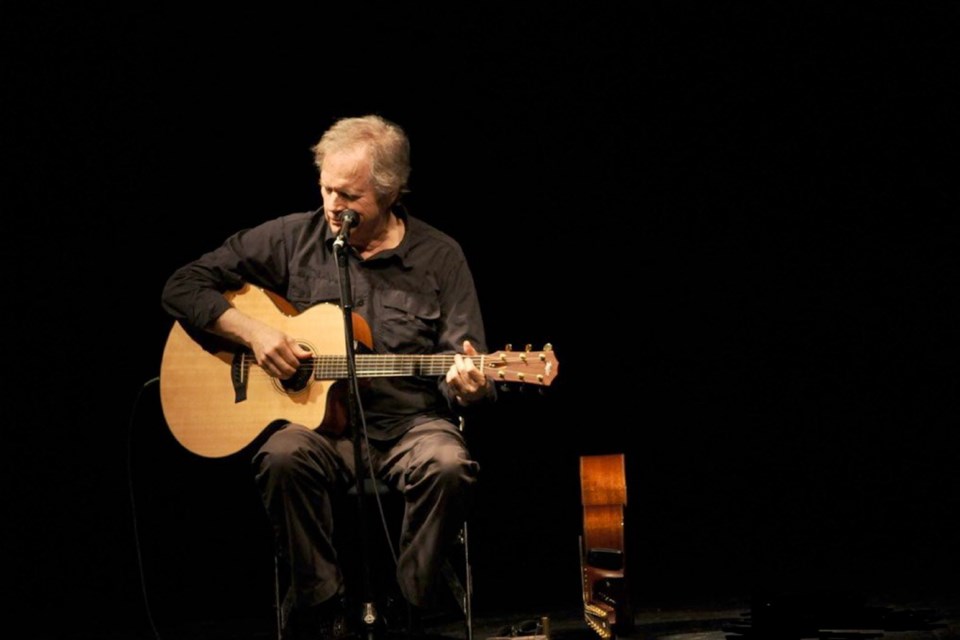IN CONCERT
What: Leo Kottke
Where: Victoria Conference Centre Theatre, 720 Douglas St.
When: Friday, March 23, 8 p.m. (doors at 7:30)
Tickets: $39/$49 at brownpapertickets.com
Note: Kottke also performs Thursday, March 22, at the Native Sons Hall in Courtenay
Catching up with Leo Kottke is like reuniting with an old friend you knew as a child, but lost contact with as an adult. As you’re talking about memories rooted in a specific time and place, you’re making new ones in the here and now.
Kottke, 72, is nearly without peer when it comes to interviewees. There is an element of familiarity that exits right out of the gate, a time-worn respect suggesting he has been down this road before, even though he most likely has not. His opinions can have several meanings, each one of them interesting.
“This guitar s*** is all over the map — very chaotic and divergent,” Kottke said. “You just hope that something floats by.”
Though he declines most interviews, when he agrees to a chat, Kottke opens the book. During a recent conversation from his home in Minneapolis, the celebrated acoustic guitarist talked about his childhood and how the simple sound of voices on the radio prompted him to pursue music.
Kottke said he would fall into the “syllables and phonemes and fricatives and plosives” of language, and knew then and there he was bound to play music for a living. He taught himself the guitar at 11, and has never regretted the decision. “When I first got a guitar, it touched the spot that needed touching. Nothing much else was getting through to me. It’s become a life, and not just because it’s a job. People get this kind of bug, are grateful for it, and, after a period of time, are also a little dismayed at how much you do for it. It’s alive. It has a life.”
The Georgia-born, Washington, D.C.-raised performer suffered hearing damage as a youngster, the result of a firecracker experiment gone awry. He was discharged from the U.S. naval reserve on account of his hearing, which sent him even deeper down the rabbit hole as an artist. He became fluent in guitar parlez, and, in doing so, joined some of the greats — John Fahey, Michael Hedges — in a class unto themselves. “It’s a privilege to play, which is something I didn’t quite know in the beginning,” he said. “It’s silly, and also rude, I guess, to say no.”
Kottke learned from Hedges the advantages to learning how live sound works. A bright person to begin with (he studied English at Minnesota’s St. Cloud State University), Kottke developed a strict mandate about what sound systems he would or would not use in concert. “They assume it’s just one guitar, and everything will be OK. But it’s actually the opposite. When you have one instrument up there, all the warts show much quicker. You have to learn how to do their job, in order to deal with the nights where they don’t know how to do their job.”
Kottke can be unrelenting in some ways. His rules when it came to equipment was applied to other artists he respected, such as Bob Dylan.
“The [Newport Folk] festival, where Dylan came out with the electric guitars and got booed, I know what that happened — and it wasn’t because everybody hated the electric stuff. It was because the equipment itself wasn’t there. I heard him and several guys who became the Band in Minneapolis one year, and it was hideous. I left.”
Blaming a sub-par sound system for one of the key moments in rock ’n’ roll history — when Dylan went electric in 1965 — is a perfectly executed opinion where Kottke is concerned. He wants his audience to look more analytically at life. “I can like anything, it just has to get to me. If it’s good, it’ll work.”
Kottke is returning to Victoria following his 2013 gig for a performance at the Victoria Conference Centre Theatre on Friday.
Stories seem to fall out of Kottke, such as the time he played a Caribbean clifftop club in St. Bart’s, once owned by Jimmy Buffet, that felt like it was going to fall into the ocean when the audience started tapping its feet.
“So I played a lot of ballads that night,” Kottke quipped. “Steve Winwood and his wife were there, and they just found out they were going to have a child. They split. They didn’t want to fall into the rocks like the rest of the Kottke fanatics.”
Kottke has his share of followers, despite barely registering from a studio standpoint. His recording schedule came to an abrupt halt after 2005’s Sixty Six Steps, which led Kottke to dissolve his contract with RCA. He has some fond memories of being in the studio — the two records he made with Mike Gordon of Phish are his favourites — but Kottke doesn’t expect to offer much in the way of albums going forward.
“Except in the very beginning, because of the novelty of it, I’ve never really thought recording was something I had to do. My interest is in performance and playing.”
Kottke realizes what that means when he heads back out on the road: He who does not record is considered an oldies act. But nothing could be further from the truth with Kottke, who remains a vibrant live performer.
“I’ve been trained to think — we all have — that when you get old, everything gets old. But it’s exactly the opposite. If you have something, one little handle of some kind — writing, playing — I think everything does continue, and it is a work in progress. If that isn’t happening, what’s the alternative?”

.png;w=120;h=80;mode=crop)

